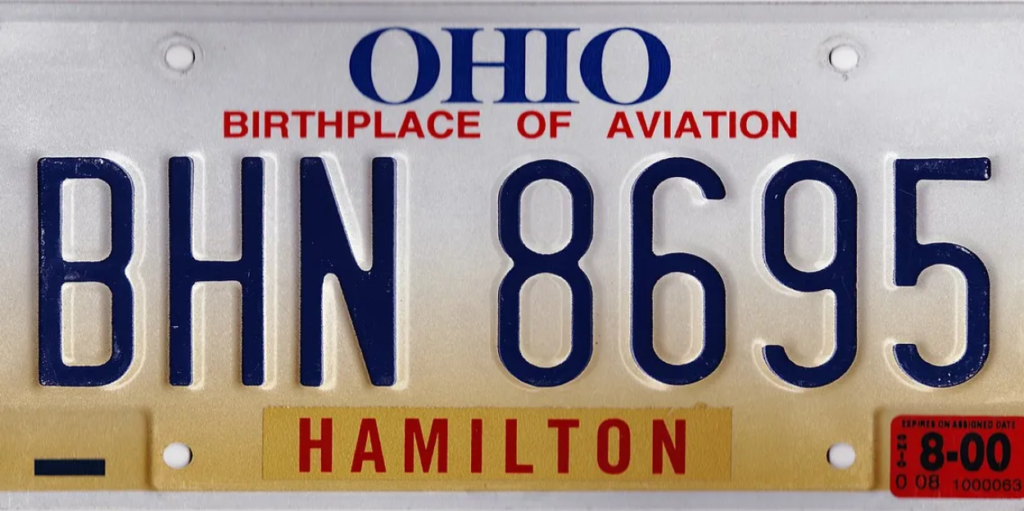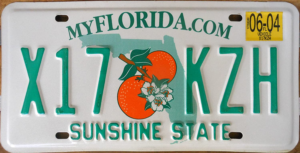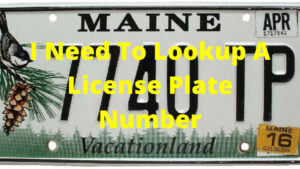Private Investigator License Plate Lookup
In the shadowy world of private investigation, information is king. Often, a single license plate number can unlock a treasure trove of details, leading investigators down the intricate paths of a case. But navigating the legal landscape of license plate lookups requires more than just keen observation and deduction. Enter the Drivers Privacy Protection Act (DPPA), a complex web of regulations governing access to vehicle registration information. For a private investigator, understanding and adhering to the DPPA is essential to ensuring the legality and effectiveness of license plate investigations.

The Intricate Web of the DPPA:
Enacted in 1995, the DPPA aims to balance the need for legitimate investigation with the right to privacy of vehicle owners. It restricts the disclosure of personal information contained in vehicle registration records, including names, addresses, and phone numbers. However, the DPPA allows exceptions for “permissible purposes,” opening the door for private investigator license plate lookup under specific circumstances.
Navigating the Permissible Purposes:
As a private investigator, your ability to conduct a license plate lookup hinges on demonstrating a permissible purpose. These purposes, outlined in the DPPA, can be broadly categorized as follows:
- Investigating a crime or potential crime: This includes cases of fraud, theft, stalking, or personal injury.
- Locating a missing person or vehicle: This encompasses cases of child abduction, missing witnesses, or stolen cars.
- Obtaining information for use in a civil lawsuit: This could involve gathering evidence for a personal injury or property damage claim.
- Recovering a debt: This includes cases of unpaid invoices, delinquent accounts, or repossessions.
- Assisting in the repossession of a vehicle: This requires a valid court order or other legal authorization.
- Complying with a court order or subpoena: This includes any legally mandated investigation.
- Private Investigator License Plate Lookup
Building a Case for Legitimacy:
Demonstrating a permissible purpose is not simply a matter of stating your intentions. As a private investigator, you need to be prepared to substantiate your claims with documented evidence. This could include:
- Police reports or case files related to the investigation
- Court documents or legal orders
- Signed affidavits from clients outlining the purpose of the investigation
- Contracts or agreements detailing the scope of your work
Beyond the DPPA: Ethical Considerations:
While the DPPA provides the legal framework, ethical considerations should also guide your conduct. Always remember:
- Respect privacy: Only request information necessary for your investigation and avoid unnecessary divulging of sensitive data.
- Maintain confidentiality: Ensure the security of any personal information you obtain during your investigation.
- Avoid speculation or misuse: Use the information you gather only for the intended, legal purpose.
The Tools of the Trade:
Private investigators have a range of resources at their disposal to conduct license plate lookups. These include:
- DMV records: Some states allow limited access to vehicle registration information through public records requests.
- Commercial databases: Various subscription-based databases offer comprehensive vehicle information, including ownership history, accidents, and liens.
- Investigative networks: Professional associations and networks can provide investigators with access to specialized databases and expertise.
Building a Trustworthy Reputation:
In the competitive world of private investigation, reputation is everything. By adhering to the DPPA and conducting your license plate lookups with integrity, you can establish yourself as a trustworthy professional. This will not only ensure the legality of your work but also build trust with clients and colleagues.
Conclusion:
The private investigator’s path is one of constant learning and adaptation. Navigating the intricate web of the DPPA when conducting license plate lookups requires a keen understanding of the law, ethical principles, and the ever-evolving landscape of information access. By staying informed, employing responsible practices, and building a reputation for integrity, you can ensure that your investigations are not only effective but also legal and ethical. Remember, a license plate may hold secrets, but it’s the private investigator’s responsibility to unlock them within the boundaries of the law and respect for individual privacy.
Note: This article is for informational purposes only and does not constitute legal advice. Always consult with an attorney to ensure compliance with the DPPA and other relevant laws in your jurisdiction.
Lance Casey & Associates
5015 Madison Ave Unit #A90 Sacramento, CA 95841
(800) 683-4769

Demystifying the Maze: When Private Investigator License Plate Lookups Navigate the Drivers Privacy Protection Act
Private Investigator License Plate Lookup In the shadowy world of private investigation, information is king. Often, a single license plate number can unlock a treasure trove of details, leading investigators

Can I Lookup a Florida License Plate Number
Can I Lookup a Florida License Plate Number? Introduction When it comes to Florida license plate numbers, you might find yourself in situations where you need to look up

Michigan License Plate Lookup: How to Conduct a Search and What You Need to Know
Michigan License Plate Lookup Services If you’re interested in finding information about a vehicle registered in Michigan, a license plate lookup can provide you with important details. As a licensed

Discover the Benefits of a License Plate Lookup Search in Florida with Lance Casey & Associates
Florida License Plate Lookup https://youtu.be/Fy_1_nprlv4 Are you trying to identify the owner of a vehicle in Florida for a legal matter, insurance claim, or any other permissible purpose under the

Can A Private Investigator Run A License Plate
Facebook Yelp Youtube Frog Foursquare Link Whatsapp Run This Plate Why would a private investigator run a license plate? Private Investigators can run license plates for many states. As long

I Need To Lookup A License Plate Number
I Need To Lookup A License Plate Facebook Yelp Youtube Frog Foursquare Link Whatsapp https://youtu.be/eP5Js0x9v7g License Plate Lookup license plate owner lookup